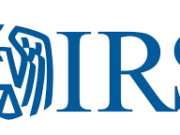The Campaign Legal Center’s Paul Ryan has responded to my December 9 Wall Street Journal op-ed with a letter that, while apparently intended to rebut the op-ed, in fact affirms its core point.
My Journal piece was critical of the IRS’s foray into political regulation, asking the question “Why is the IRS regulating political activity?” I argued that the ostensible tax arguments being made for IRS regulation were wrong, and pointed out that the IRS’s proposed regulation “is not about taxes.” Rather, I noted that “the goal is to hamper the political opposition” by using the Internal Revenue Code to force organizations to disclose their donors, then subjecting them to harassment, boycotts, and the like. It is a blatant effort to use the Internal Revenue Code to do indirectly what the Supreme Court, in Buckley v. Valeo and other cases, has said the government can not do directly.
Ryan addresses three points that I had addressed as flawed arguments used by supporters of IRS regulation:
First, he agrees with me that 501(c)(4) organizations are not “charities.” This is good. Ryan takes offense, arguing that the Campaign Legal Center has not made this claim. Of course, others pushing the argument have, and I didn’t begin to claim that every group has made every claim – CLC was cited in my article as one example of a speaker pushing incorrect legal arguments. But if this was read as attributing to CLC a position they have not taken, mea culpa. I’m just glad to have CLC on record on that, and hope they will give a call to Rep. Xavier Bercerra and others who have made that claim.
Next, Ryan complains that I am mistaken in arguing that 501(c)(4) organizations have long been acknowledged and permitted to engage in political activity. He cites IRS regulations that state, “The promotion of social welfare does not include direct or indirect participation or intervention in political campaigns on behalf of or in opposition to any candidate for public office.” But as Ryan knows, the regulations also specifically provide, “An organization is operated exclusively for the promotion of social welfare if it is primarily engaged in promoting in some way the common good and general welfare of the people of the community.” 26 CFR 1.501(C)(4)-1 (emphasis added). Indeed, CLC until recently was suing the IRS over this regulation. True, it would be simpler if the IRS had directly defined “social welfare” as including a percentage of political activity, rather than using the roundabout approach it does, but the end result of the two regulations is that 501(c)(4) organizations have been lawfully engaged in political activities for decades. CLC cannot have it both ways, relying on IRS regulations that seem to imply that “social welfare” (a term not defined at all by statute) excludes political activity when it suits their agenda, and then ignoring those IRS regulations that make clear that 501(c)(4) organizations can engage in political activity so long as it is not their primary engagement. Meanwhile, CLC has no answer for the question I asked: Since when, in a democratic society, are nonpartisan get-out-the-vote drives, voter registration, voter education, and meet-the-candidates nights – all of which will be limited by the IRS’s proposed rules—not activities in support of social welfare?
For his third point, Ryan complains that 501(c)(4) organizations (and for good measure, he adds candidate campaign committees) get a tax break because they don’t pay income on contributions they receive. This is certainly a position one can take, but it is a most dubious one. I think few Americans would consider gifts to non-profits, made with after-tax dollars, to be income that should be taxed again. I’d love to have this debate with Ryan or any other CLC anti-speech spokesman any time. As Professor Doug Levene writes, “the very idea of taxing a nonprofit may seem strange. Since 501(c)(4) groups typically spend every penny they take in and don’t make any profits or distribute any earnings to shareholders, how can they have any liability for income taxes?”
Professor Levene continues:
[C]onsider what would happen if a bunch of fishermen decide to form an organization to promote fishing, buying boats and tackle and running fishing trips. Remember, if they were acting individually, none of them would be able to deduct their fishing expenses. If they form a club, all their contributions count as income to the club, and none of the expenses of the club are deductible — from either the donors’ individual taxes or those of the corporation — because the club is not engaged in a profit-making activity. This makes sense, because we do not want to permit individuals to create deductions for their hobbies by engaging in them collectively rather than individually.
However, we do give the fishing club a tax exemption, to put its members in the same position for tax purposes that they would be in if they were fishing individually: Each member earns money, pays taxes on that money, and then spends that money on fishing. To subject the club to a tax on that income, the money spent on fishing, would be to impose an additional tax on the members’ fishing.”
And all this ignores the basic fact – or perhaps better put, implicitly admits the fact – that if 501(c)(4) organizations were treated as political groups, their tax liability would be the same. So this is not about revenue collection. But if Ryan thinks that CLC should pay taxes on its donations, and that that would be fair, we can have that debate.
Finally, Ryan concludes by agreeing with the core point of my editorial. “What’s really at stake here,” he writes, “is disclosure of money spent by tax-exempt groups on candidate-related election activity.” Which was exactly my point. This is not about collecting tax revenue, but about using the IRS for campaign finance regulation. Which is why I asked the question, “Why is the IRS regulating political activity at all?” In 350 words, Ryan makes no attempt to answer that question, except to say that he wants more regulation of political speech. Well, so do many others. But why is the IRS doing it? The answer, again, is to finesse limits that the Supreme Court has placed on compulsory disclosure.
Of course, Ryan can’t resist one more little exaggeration when he writes that “the Center sides with the Supreme Court” in supporting disclosure. Of course, the Supreme Court has upheld as Constitutional a good deal of campaign finance disclosure. But it has, as CLC knows, but rarely, if ever, admits, also held a good deal of campaign finance disclosure to be unconstitutional, especially disclosure of funders and members of organizations that do not have a primary purpose of political activity, except to the extent that those funders have given money for the purpose of political activity. Ryan seeks to give the impression that the Supreme Court has ruled that the types of disclosure that CLC seeks – disclosure unprecedented in American history, and disclosure with which CLC itself does not currently comply – has been determined to be constitutional. He knows that that is not true. Nor of course, does that go to the policy rationale at all. Ryan just wants to steal a bit of credibility from the same Court he regularly savages for its other campaign finance decisions.
Thus, in the end, we find CLC’s letter rather satisfying: CLC admits that 501(c)(4) organizations are not charities, and should not be confused with charities; he implicitly admits that there is no revenue impact to these regulations, and he explicitly admits that what is motivating this use of the IRS is not tax policy, but campaign finance policy. Using the IRS for political regulation has always been a bad idea, always subject to the possibility of abuse, and we saw that come true this spring with Inspector General’s report of improper (and possibly illegal) targeting of conservative 501(c)(4) organizations by the IRS. We understand that CLC thinks it is really, really important to regulate political speech, but no matter how you cut it, using the IRS to do so is simply bad government.
In their zeal to limit speech, “reformers” like CLC are abandoning all pretense of sound policy making – what might be called neutral, good-government policies. “Reformers” were once called “goo-goos”: short for “good government.” Now, perhaps, we can call them “baa-baas” – short for “bad, bad” government.














